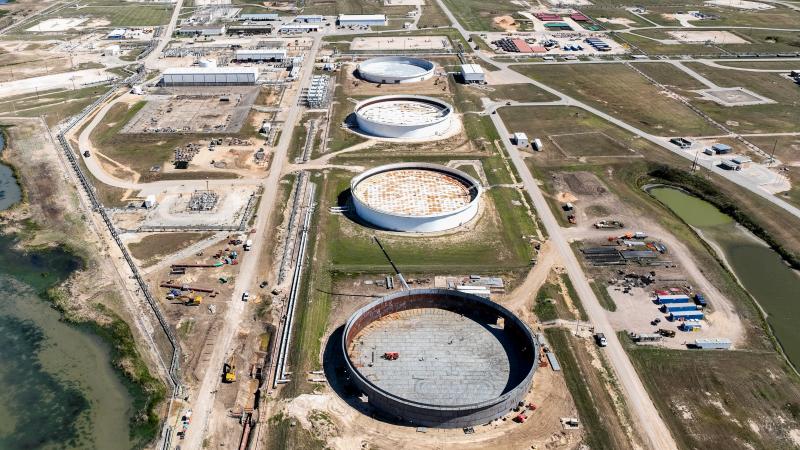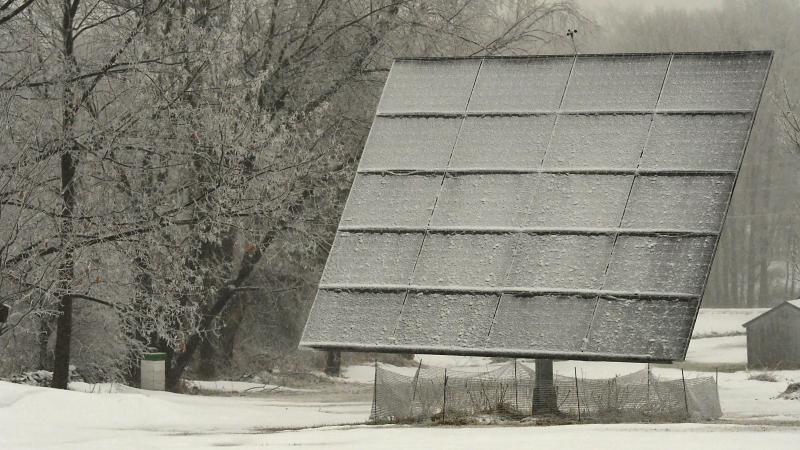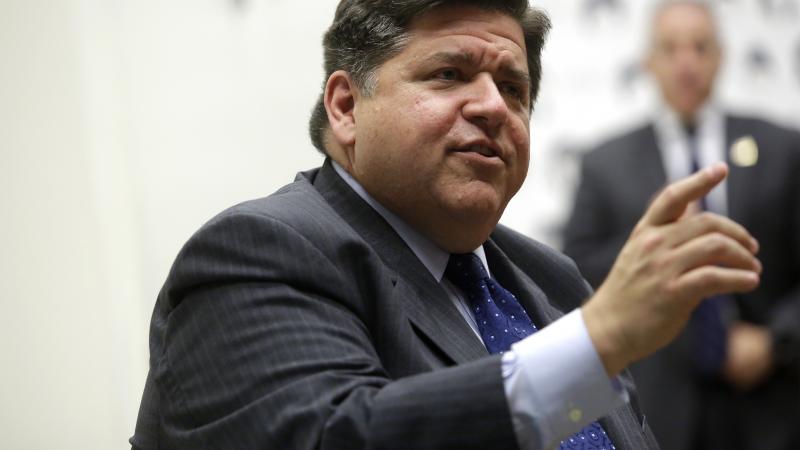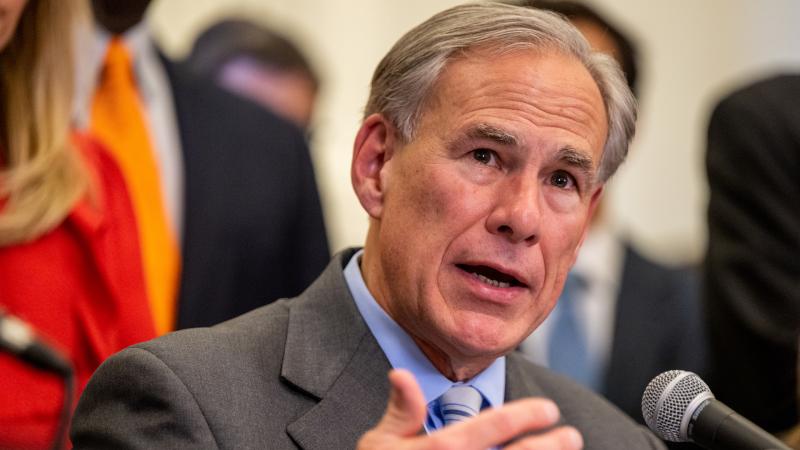GOP zeroes in on Biden's clean energy giveaways as Trump urges passage of 'big beautiful' bill
Coalitions wrote competing letters to the Ways and Means Committee chair, with 21 Republicans wanting to keep the green energy subsidies in Biden's Inflation Reduction Act, and 38 Republicans seeking a full repeal. Meanwhile, Trump urges the GOP to find a consensus to pass "one, big beautiful" budget reconciliation bill.
The House Energy and Commerce Committee released its section of the Republicans' budget reconciliation bill Sunday evening. The legislation, which was marked up on Tuesday, includes provisions to scrap $6.5 billion in funding from parts of the Inflation Reduction Act (IRA) that funds climate-related issues.
The text sets the stage for what could be a fight between Republicans who want to keep IRA subsidies and those who want a full repeal of them. In March, 21 House Republicans wrote to Rep. Jason Smith, R-Mo., chair of the Ways and Means Committee to advocate for preserving the IRA energy tax credits. Earlier this month, 38 House Republicans wrote a letter to Smith calling for a complete repeal of the entire IRA.
Trump Monday urged the House GOP to find a consensus to pass the “one, big beautiful” bill. The budget reconciliation is a gargantuan piece of legislation that Republicans can use to advance Trump’s “unleashing American energy” agenda. The process for the bill lowers the Senate’s threshold of 60 votes down to 51. With Republicans controlling the House, Senate and White House, they can pass sweeping legislation for a host of favored policies — provided they can come to a consensus on a number of disputes which include IRA tax credits.
Entitlements vs. energy subsidies
Alex Stevens, communications director for the Institute for Energy Research, told Just the News that the House, in order to pass a bill in line with Trump’s interest in scaling back government spending, will have to choose between entitlement programs, such as Medicaid, and the lavish subsidies granted climate programs in the IRA.
For Republicans, Stevens said, the choice should be obvious. “Politically, it seems like the IRA would be a much more favorable option. A lot of these people campaigned on this,” Stevens said.
Rep. Brett Guthrie, R-Ky., chair of the committee, made a similar point in an op-ed published in the Wall Street Journal ahead of the legislation’s release.
“The 2024 election sent a clear signal that Americans are tired of an extreme left-wing agenda that favors wokeness over sensible policy and spurs price increases,” Guthrie wrote.
Provisions in the proposal
The committee’s section would claw back unobligated balances from the IRA that went toward the Department of Energy (DOE)’s Loans Program Office (LPO). Energy Secretary Chris Wright testified last week that the LPO had issued about $40 billion in loans for energy projects over the last 15 years. But in the last 76 days of the Biden administration, that number jumped to $100 billion. Wright said that the rushed loan agreements lacked clauses traditionally required by the DOE.
The energy section of the committee’s proposal also rescinds IRA funding for advanced vehicle manufacturing, electric vehicles, tribal energy loan guarantees, and efficiency grants for states. The IRA allocated approximately $8.3 billion to those programs.
The proposal also contains a provision that would require companies applying to the DOE for liquefied natural gas export permits to non-free-trade agreement countries to pay a $1 million user fee to have their application deemed to be in the public interest, which is normally an important hurdle in having the applications approved.
Another provision allows developers of natural gas projects to pay $10 million, or 1%, of the project’s projected capital costs, whichever is less, to have their permit reviews given expedited treatment. Thwarting lawfare that often delays domestic gas production, those projects would be exempt from judicial review.
Phasing out tax credits may not be a solution
The IRA provided extensive tax credits for a variety of climate projects — everything from wind farms to hydrogen. Rep. Jodey Arrington, R-Texas, chair of the House Budget Committee, told E&E News that he thinks there could be a more “thoughtful” way to phase out the IRA’s tax credits.
The Institute for Energy Research argues that a phase down of the green energy subsidies would only give them a foothold for those who want to preserve them.
“History shows there is no such thing as a 'phase down' of these policies because they will inevitably be resurrected. If the goal is to protect taxpayers from never-ending subsidies and protect the electric grid from the destabilizing influence of the Production Tax Credit (PTC) and Investment Tax Credit (ITC), these tax credits need to be ended now,” the IER argued.
Stevens, who co-authored the paper, said in an interview that “when push comes to shove, if people hold firm to their commitments to cut spending, the IRA is going to be at the top of the list of things that they're going to need to look at.”
Estimates vary as to how much the IRA’s subsidies will ultimately cost taxpayers, but the Cato Institute puts the figure at $5 trillion by 2050. The clean-energy subsidies don’t have an end date. Instead, they would be phased out only after certain emission-reduction targets are met, and that’s not likely to happen, according to the Cato Institute’s calculations.
Citing the Cato Institute’s research, as well as other estimates that put the cost of subsidies in the trillions of dollars over the next decade, Americans for Tax Reform led a coalition of free-market organizations in a letter to members of Congress calling on a complete repeal of the IRA's “Green New Deal” subsidies in the reconciliation bill.
The letter notes a number of ways in which the subsidies create distortions in America’s energy market, from driving up the cost of energy to destabilizing the grid.
Compared to Obamacare
Gabriella Hoffman, director of the Center for Energy and Conservation at the Independent Women’s Forum, which is one of the groups that signed the letter, told Just the News that the IRA creates lucrative subsidies that flow into some Congressional districts.
“It's not shocking that some elected Republicans who didn't vote for it, but seek to benefit from it, are part of the opposition efforts,” Hoffman explained. She also said that the subsidies drive the development of unreliable and expensive wind and solar power, while innovation in nuclear energy is stifled.
“So much emphasis has been placed unfairly on these intermittent, unreliable sources, and they're costly. Ultimately, the taxpayers are going to feel the brunt of this. It would be prudent for Congress to repeal all the subsidies, or else we’re going to be stuck with it, much like Obamacare,” Hoffman said.
Obamacare, also known as the Affordable Care Act, was passed in March 2010 during the Obama administration, promising to lower healthcare costs for all Americans. Instead, total healthcare expenditures in the U.S. have continued to climb since the bill was passed. There have been multiple attempts to repeal or replace the law, and none have so far been successful.
Under pressure to pass a reconciliation bill, it remains to be seen whether Republicans will manage a full repeal of the IRA clean energy tax credits. Despite the value to some lawmakers' constituencies, with so much opposition to the tax credits, the final bill may, at the very least, scale them back.
The Facts Inside Our Reporter's Notebook
Documents
Links
- released its section
- advocate for preserving the IRA energy tax credits
- urged the House GOP to find a consensus
- process for the bill
- Institute for Energy Research
- Wall Street Journal ahead
- testified last week that the LPO
- told E&E News
- IER argued
- Cato Institute put the figure at $5 trillion by 2050
- led a coalition of free-market organizations
- Gabriella Hoffman
- total healthcare expenditures in the U.S. continued to climb
- been multiple attempts to repeal or replace the law














